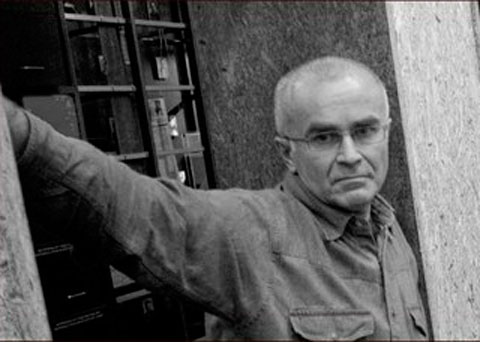Belarusian dissident Mikhail Kukabaka of Russian human rights activist murdered in Ukraine: Andrei Mironov’s weapon was truthful information that exposed government lies
The memorial service was attended by the Belarusian dissident Mikhail Kukabaka, who knew Andrei Mironov since 1989.
“He died at his post,” wrote Mikhail Kukabaka in his letter to the Human Rights Center “Viasna” about the tragic death of his friend, who shared the fate of a political prisoner. “A decent and honest man. A true democrat, indifferent to all kinds of violence. His weapon was truthful information that exposed the government lies,” says he of Andrei Mironov. “He risked a lot during his trips during the Russian-Chechen wars, but he was lucky to escape death until now. This trip to Ukraine was his last. His death was quick, random and out of place in its own way. À la guerre comme à la guerre… Sincere condolences to his loved ones.”
Reports about the tragic death of a 60-year-old Andrei Mironov came in the morning of 25 May. The Russian human rights activist and translator was killed along with Italian journalist Andrea Rocchelli when they were caught up in a fierce firefight in the rebel-held flashpoint of Slovyansk. The Italian became the first journalist killed in east Ukraine.
According to his colleagues, Andrei Mironov often accompanied journalists, politicians, representatives of international human rights organizations as a translator. But nowhere was the human rights activist and former political prisoner a simple translator. In 1985, he was arrested for distributing samizdat; in 1986, he was convicted by the Supreme Court of Udmurtia for “anti-Soviet agitation and propaganda” (Article 70 of the RSFSR Criminal Code) and sentenced to four years in labor camps and three years of reference, but in February 1987, after Gorbachev announced the beginning of perestroika, Mironov was released along with other political prisoners. He joined “Memorial” in the beginning of its foundation in 1988.
Andrei Mironov has been in many hot spots – either alone or with a group of colleagues. Since 1994, he has on numerous occasions been in Chechnya to appear in the midst of hot events for a long time. His language skills and knowledge of the situation in the country made him a person whose thoughts were respected in international structures. In 2008 in Paris, Andrei Mironov and Alexei Makarov were awarded he Pierre Simon Prize “Ethics and society”, promoted by the French Ministry of Health.


















